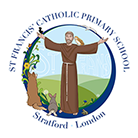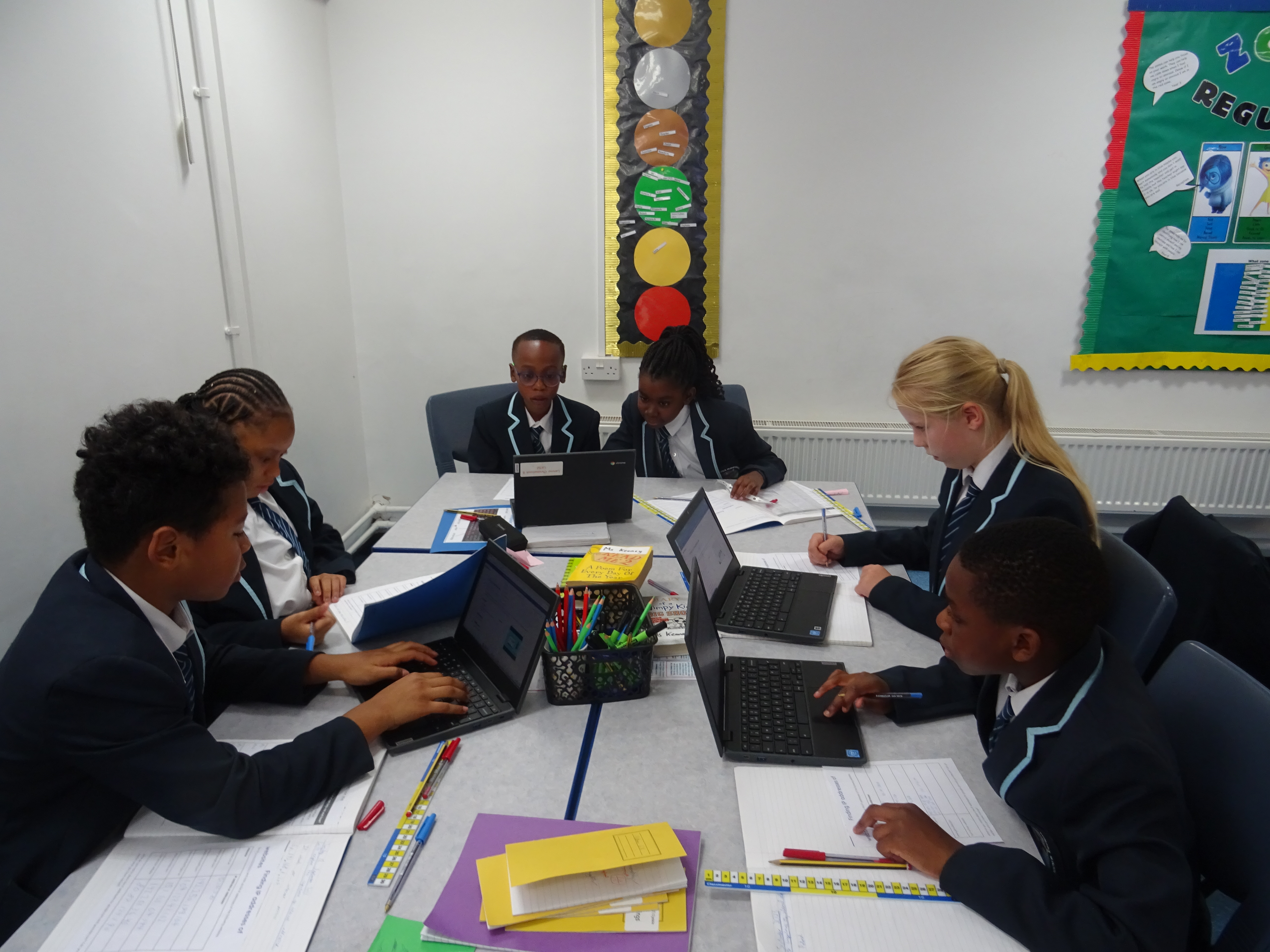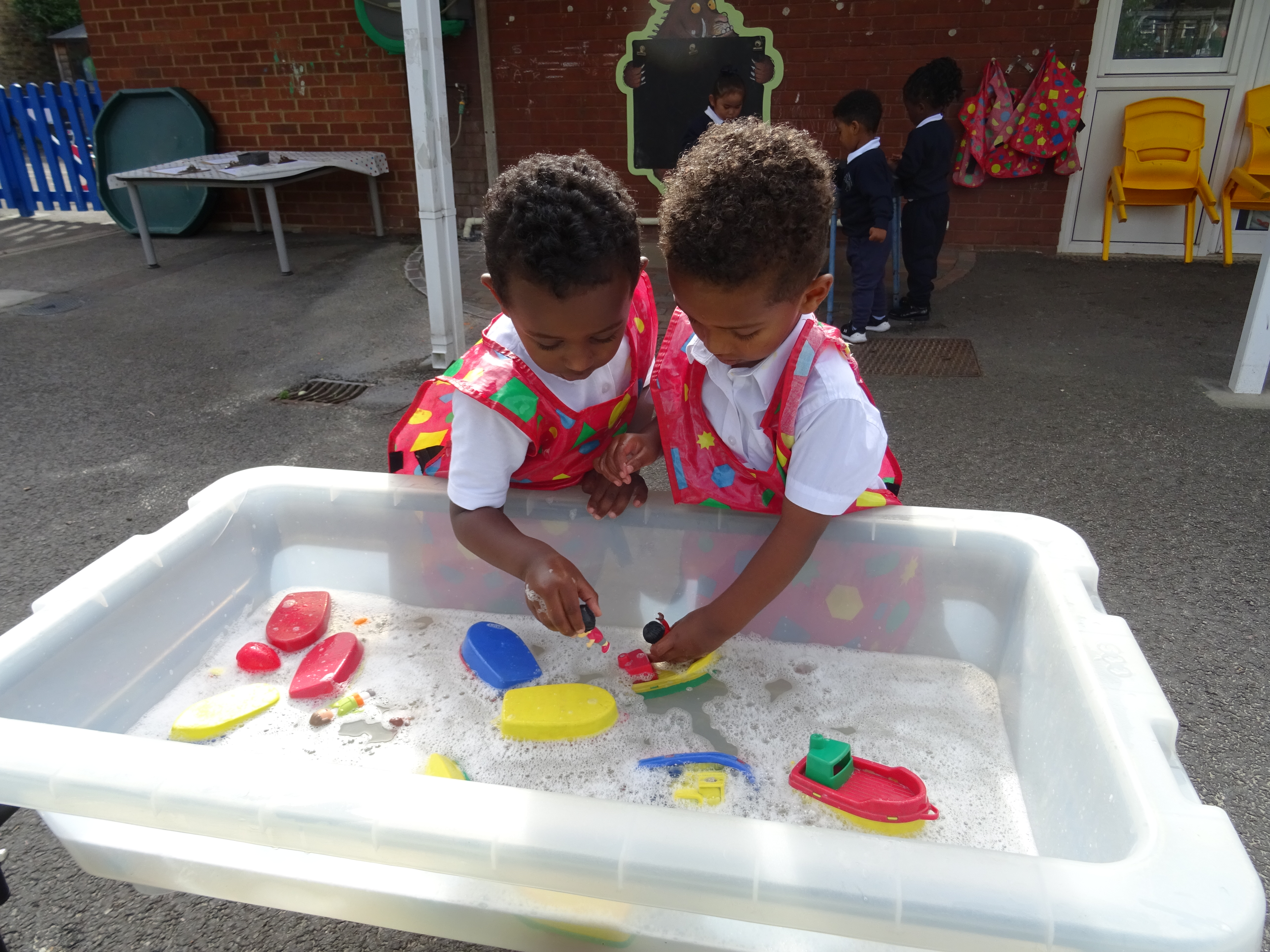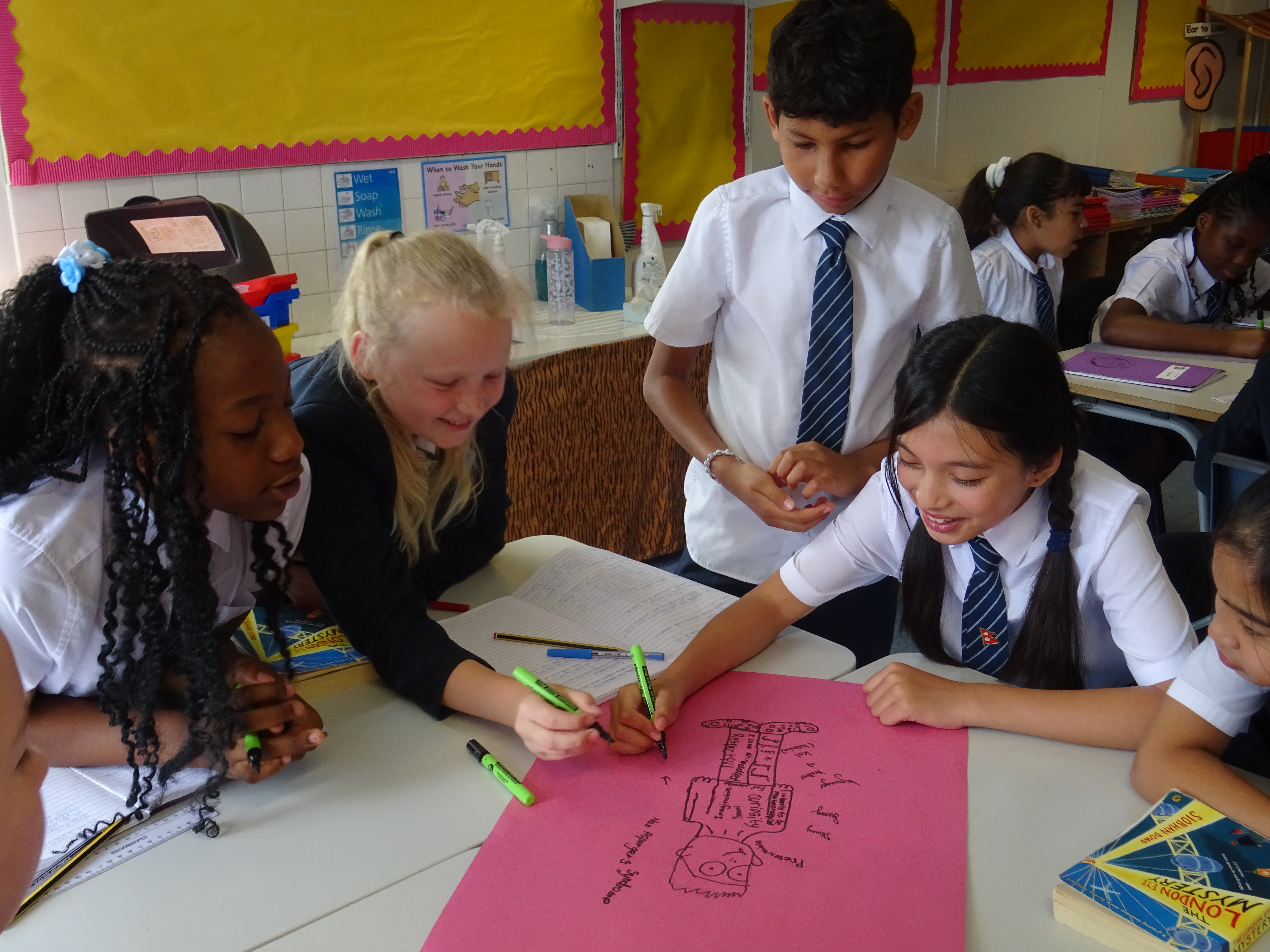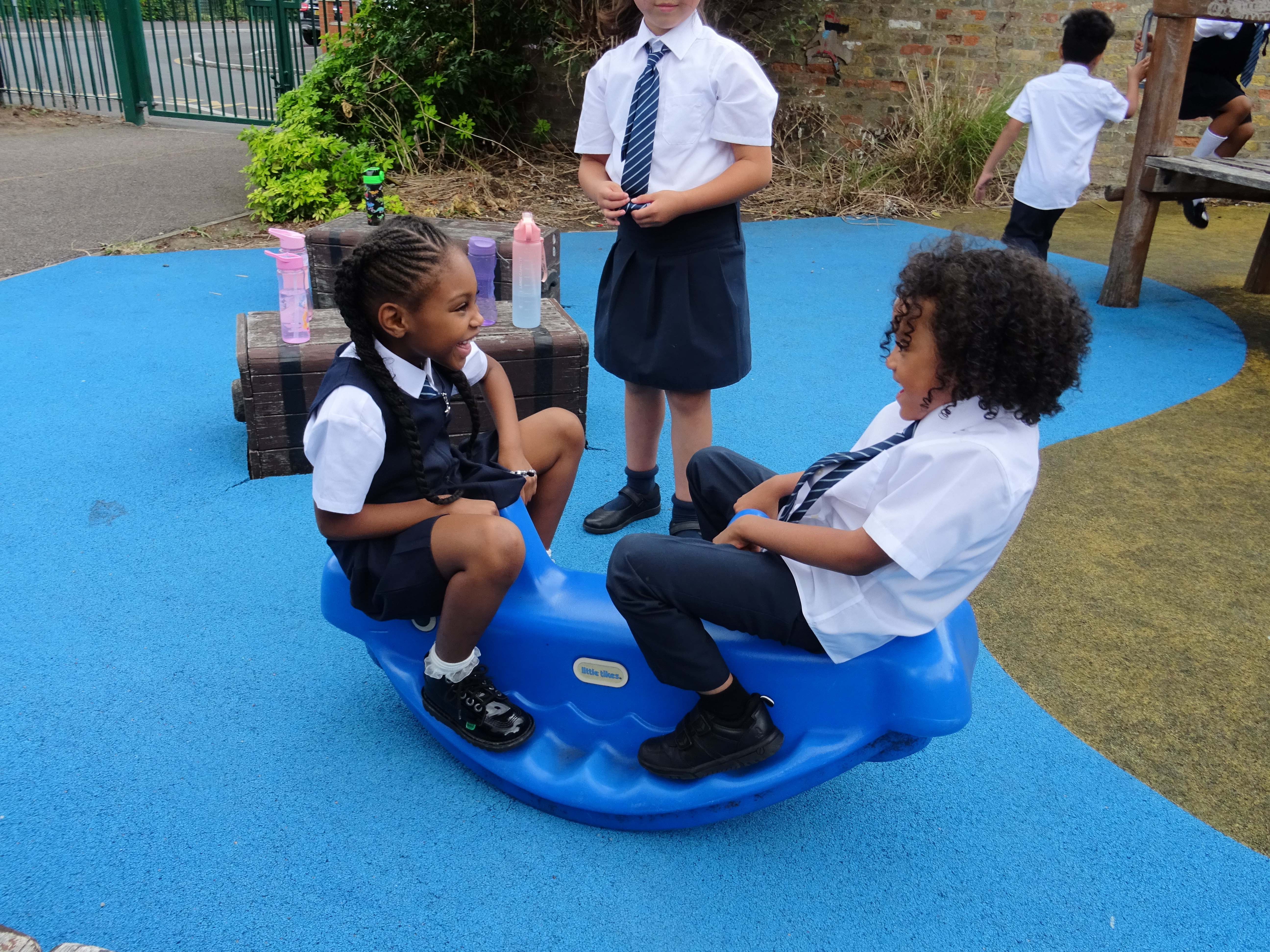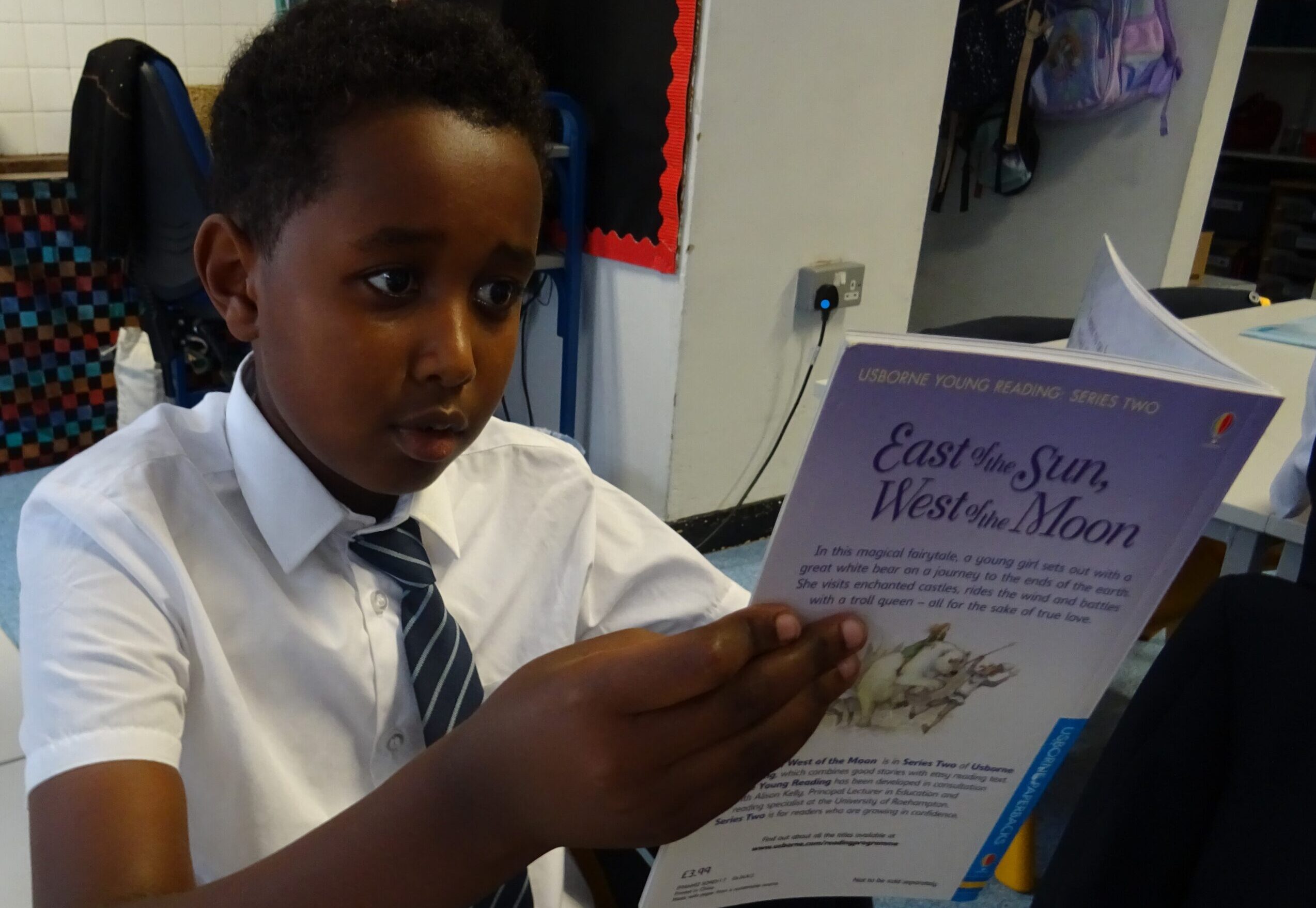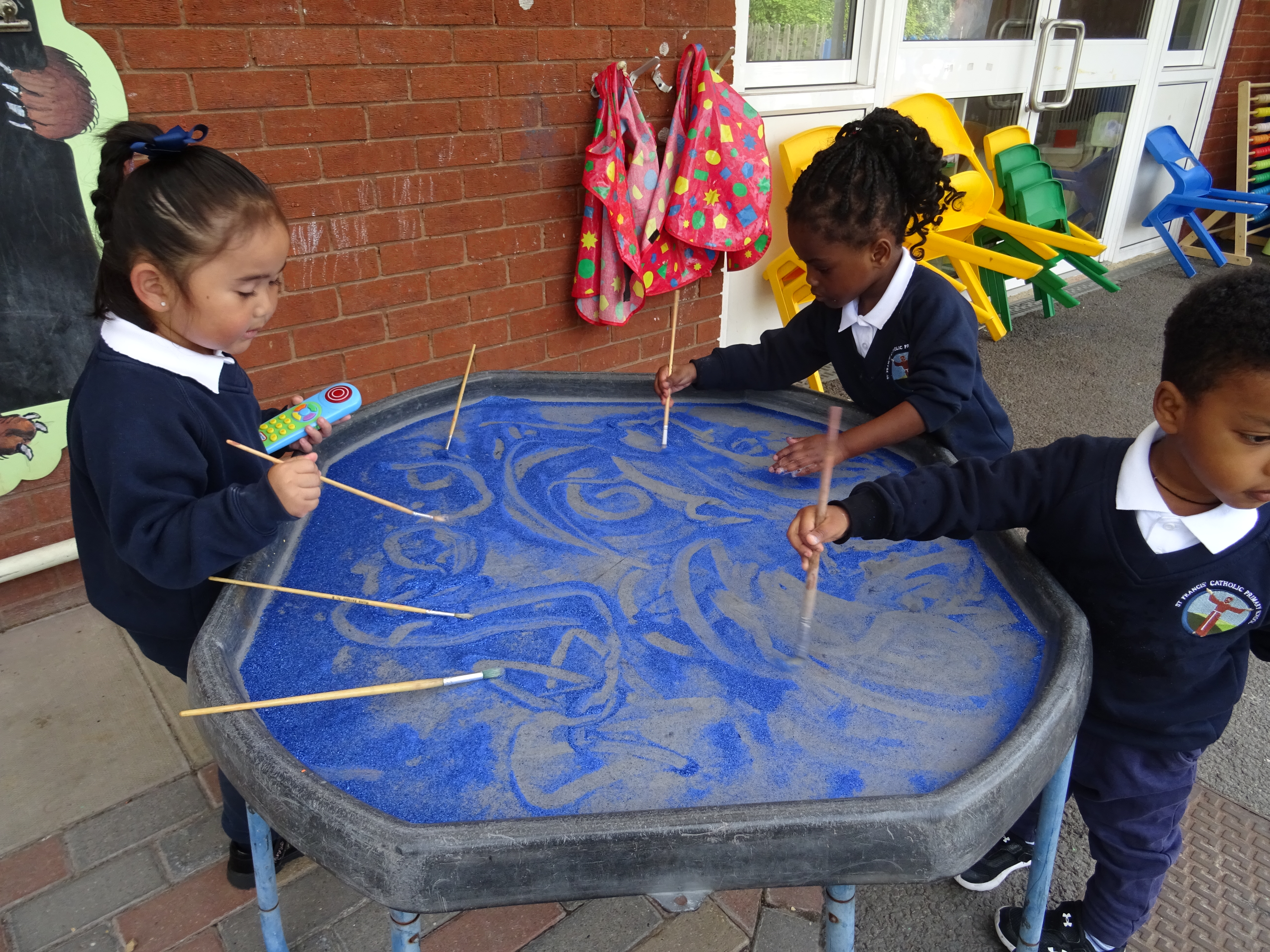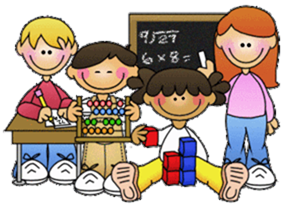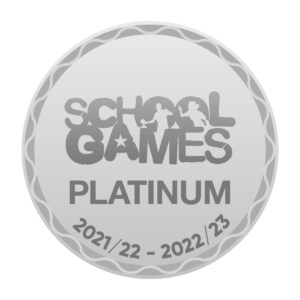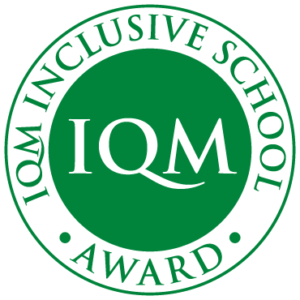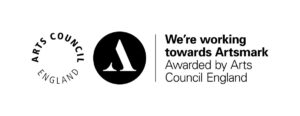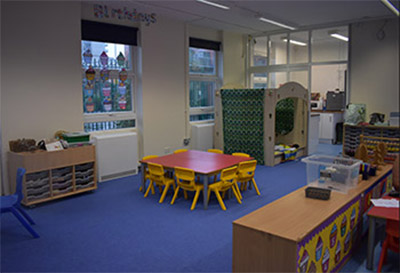 The National Curriculum provides a framework for the development of a child moving through the school. The children in the Nursery and Reception classes are taught using the Early Years Foundation Stage (EYFS) curriculum that sets the standards that all Early Years providers must meet to ensure that children learn and develop well and are kept healthy and safe.
The National Curriculum provides a framework for the development of a child moving through the school. The children in the Nursery and Reception classes are taught using the Early Years Foundation Stage (EYFS) curriculum that sets the standards that all Early Years providers must meet to ensure that children learn and develop well and are kept healthy and safe.
It promotes teaching and learning to ensure children are ready for school and gives children the broad range of knowledge and skills that provide the right foundation for good future progress through school and life.
Every Key Stage 1 and Key Stage 2 child will be taught the National Curriculum. The basic requirements for KS1 and KS2 under the National Curriculum include “core” subjects of English, Mathematics, Science and ICT. Religious Education is also taught as a “core” subject at St. Francis.
In addition, the “foundation” subjects of Physical Education, Computing, History, Geography,French, Music, Art, and Design Technology are also taught.
If you would like to see what your children are learning this term please click on the curriculum letters and curriculum maps for your child’s year group.
Curriculum offer
At St Francis’ we offer a broad and balanced curriculum experience that supports each child to reach their full potential and offers rich and diverse learning experiences beyond our local area. We know that we are preparing children for a global society and know that they will be the agents of change for our planet. Below is an overview of our current curriculum offer.
Reading is a Priority
As children learn to read they are able to decode the text by applying a range of cues. To become fluent readers they must also understand or comprehend what they read. To help them do this they need to be taught a range of reading comprehension strategies and be encouraged to reflect on their own understanding and learning. This helps children go beyond literal interpretation and recall to explore the complex meanings of a text using inference and deduction. They can begin to learn these strategies from the earliest stages of learning to read.
This document provides important information about how we teach children to read at St Francis’ and aim to deliver a broad and balanced curriculum for children to explore different texts and develop their love of reading.
Click on the link for more information about reading at St Francis school.
Phonics and Early Reading
At St Francis’ we encourage the love for reading from a very early age. In EYFS and KS1 we use Read Write Inc. to learn how to read. Read Write Inc. Phonics teaches children to read accurately and fluently with good comprehension. They learn to form each letter, spell correctly, and compose their ideas step-by-step.
Because reading is not only about decoding, we also enhance comprehension skills by using Pinpoint CGP and Collins Comprehension books. These comprise age appropriate texts of a variety of genres where children have to show their understanding by answering different types of questions.
Last but not least, we use Oxford Owl online to provide children with high quality – age appropriate texts which they can access from home to further consolidate their reading skills.
Support for English at home:
Tips for hearing your child read
https://www.topmarks.co.uk/Parents/ten-tips-on-hearing-your-child-read
English KS1 – BBC Bitesize
https://www.bbc.co.uk/bitesize/subjects/zgkw2hv
English KS2 – BBC Bitesize
https://www.bbc.co.uk/bitesize/subjects/zv48q6f
Spelling
https://www.ictgames.com/mobilePage/lcwc/index.html
Vocabulary for EAL
https://www.gamestolearnenglish.com/
Children’s storybooks online
http://www.magickeys.com/books/
Reading games
https://pbskids.org/games/reading/
English games for 5 to 7 year olds
https://www.topmarks.co.uk/english-games/5-7-years/letters-and-sounds
English games for 7 to 11 year olds
https://www.topmarks.co.uk/english-games/7-11-years/spelling-and-grammar
Phonics
https://www.ictgames.com/dinosaurEggs_phonics/mobile/
Year 6 revision
https://www.bbc.co.uk/bitesize/subjects/z7mtsbk
English games for children between 5 and 8
https://www.ictgames.com/mobilePage/literacy.html
Learning Maths at Home
At school your child is taught a rich and relevant mathematics curriculum ensuring they are very well-equipped for the next stage of their education. Maths learning does not end once the school day is over. In fact we all apply mathematical strategies as we go about our daily lives; calculating the cost of shopping, estimating the size of a new carpet, working out the distance between one destination to the next and planning our busy days so we can fit everything in that we need to do. Like the staff at St Francis’, we know that you too have the highest aspirations for your child so we have added some links to our website to support your child’s Maths learning at home.
Calculation Policy | Reception Methods and Strategies | KS1 Methodsand Strategies | KS2 Methods and Strategies |
Text Books
Mental Maths 5 a Day
Target Your Maths (by Stephen Pearce)
Maths Plus: Word Problems – Pupil Book (From Heinemann)
CGP Study Books
Vocabulary
Vocabulary levels are strong predictors of later literacy skills. Without a good vocabulary, children struggle to understand what they are taught, to express how they feel, to manage social situations and resolve conflicts.
Vocabulary is important both in spoken and written form. For a child to be a proficient reader he/she obviously needs to be able to decode the words on the page, but most importantly he/she needs to be able to attach a meaning to those words.
The overarching principle, and what drives the teaching of vocabulary at St Francis’, is that all children will benefit if they are exposed to enriched vocabulary within an environment where the spoken and written word are appreciated. By this we mean:
- Be exposed to a large number of words at the right level
- Experience explicit teaching of useful words
- Learn strategies for independent word learning
- Have opportunities to enjoy words
Click on the link for more information about Word Aware Vocabulary.
What is oracy and why is it so important to your child?
Oracy is the ability to express yourself clearly and communicate with others effectively through spoken language.
‘It’s about having the vocabulary to say what you want to say, and the ability to structure your thoughts so that they make sense to others.’
A key part of oracy is for children to think carefully about the language they’re using, and tailor it to their subject, purpose and audience. For example, a Year 6 pupil should understand that they need to use simpler words and sentence structures when explaining the rules of a game to a Reception child than they would if they were with their peers.
Here are a few ideas on how to support your child at home to develop their oracy skills:
